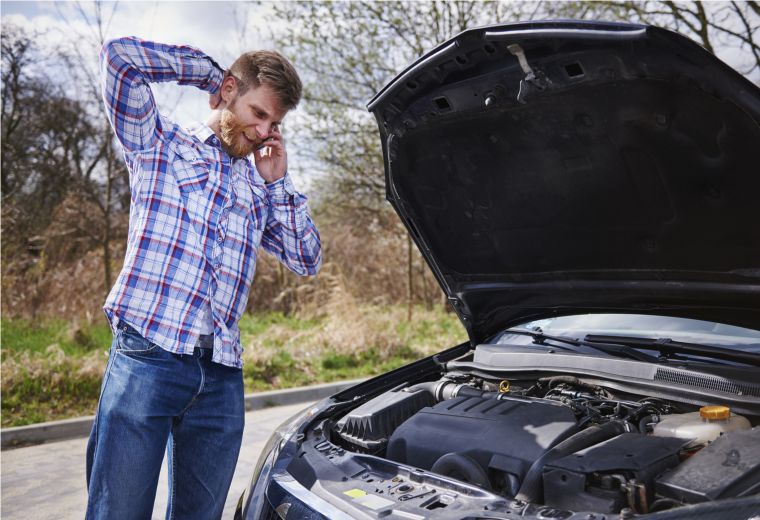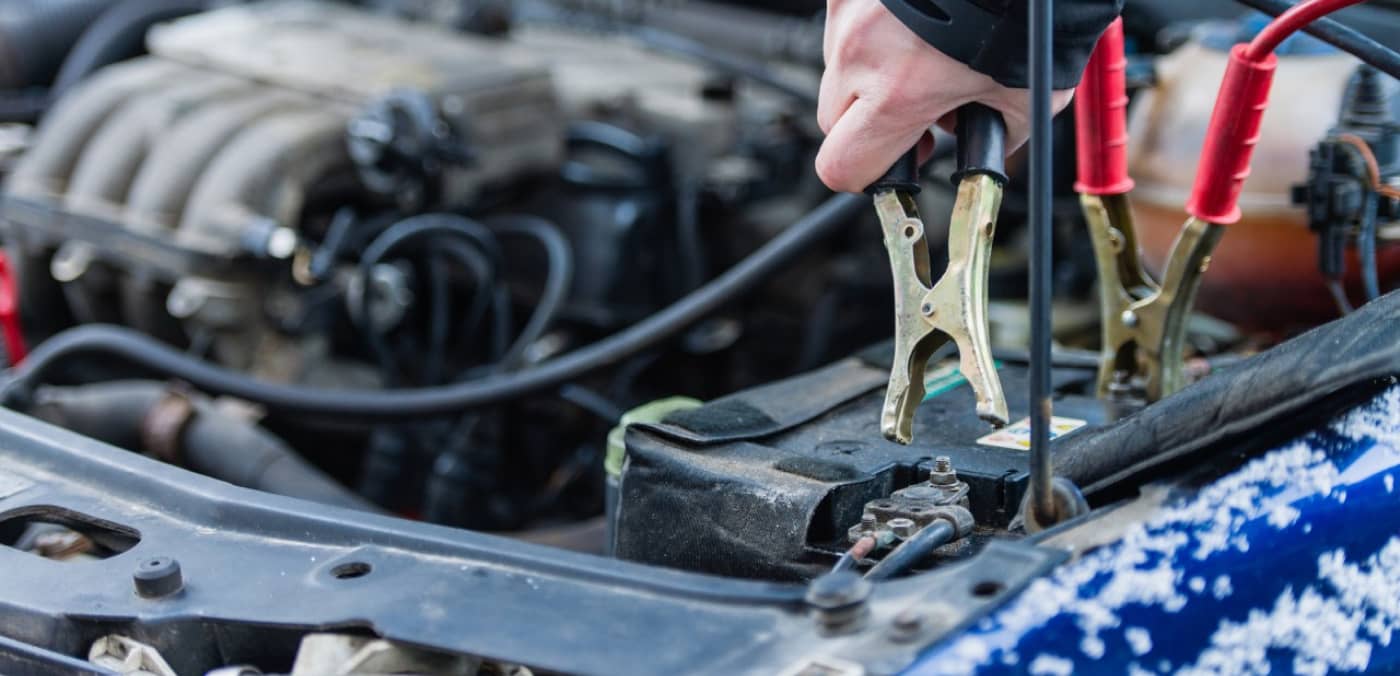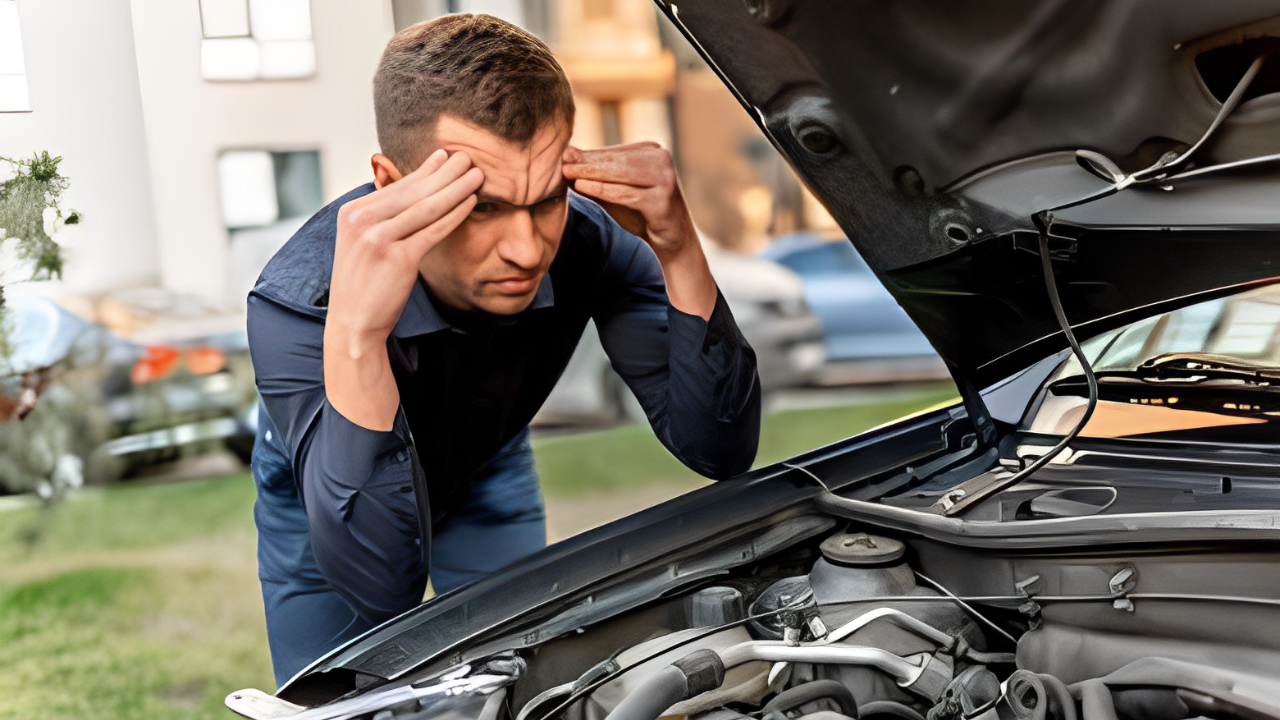If your car won’t start but the battery is not dead, it could be due to issues with the ignition system or fuel supply. Before assuming it’s the battery, check the ignition switch and fuel pump for potential problems.
Having a car that won’t start when the battery seems fine can be frustrating, but there are several other possible culprits to consider. Issues with the ignition system, such as a faulty ignition switch or a problem with the starter, can also prevent the car from starting.
Additionally, a lack of fuel reaching the engine due to a malfunctioning fuel pump or clogged fuel filter could be the cause. It’s essential to rule out these potential issues before making conclusions about the battery.
By systematically checking these components, you can pinpoint the root cause of the problem and take appropriate action to resolve it.
Diagnosing The Problem
Checking The Electrical System
If your car won’t start but the battery is not dead, the issue could lie in the electrical system. Start by visually inspecting the battery terminals for corrosion or loose connections. Use a digital multimeter to measure the battery voltage. A healthy battery should have around 12.6 volts. If the voltage is low, the battery may need to be recharged or replaced.
Examining The Starter Motor
The starter motor is responsible for engaging the flywheel and starting the engine. Inspect the starter motor for any visible signs of damage or wear. Have someone turn the ignition key while you listen for a clicking sound. If you hear clicking but the engine doesn’t crank, it could indicate a faulty starter motor or solenoid.
Inspecting The Ignition System
The ignition system includes spark plugs, ignition coils, and the ignition switch. Check the spark plugs for fouling or wear and ensure they are firing correctly. Test the ignition coil to see if it is generating adequate spark.
Additionally, examine the ignition switch for any malfunction, such as difficulty turning the key or dashboard lights not coming on when the key is ON.
Looking Beyond The Battery
When your car doesn’t start, but the battery is not dead, the issue may be more complex than a simple dead battery. It’s essential to look beyond the battery to identify other potential causes for the starting problem.
Assessing The Fuel System
Check the fuel system to ensure the vehicle gets the necessary fuel to start. Look for visible leaks, and consider testing the fuel pressure using a gauge to determine if the fuel supply is adequate.
Analyzing The Alternator
Inspect the alternator to see if it is functioning correctly. The alternator should charge the battery while the vehicle is running, so a faulty alternator could lead to a drained battery, even if the battery is not the direct cause of the starting issue.
Investigating The Fuel Pump
Delivering fuel from the tank to the engine requires a fuel pump. If the fuel pump is not functioning correctly, it could prevent the engine from starting, even if fuel is in the tank. Check for a humming sound when the ignition is turned on, which may indicate that the fuel pump is operating.
Considering Other Factors
If your car is experiencing issues starting up, but the battery is not dead, a few other factors could be causing the problem.
Considering these additional elements is essential to diagnose and resolve the issue accurately. This section will review the spark plugs, examine the timing belt, and check the engine control unit.
Reviewing The Spark Plugs
One possible reason for your car not starting could be faulty spark plugs. Spark plugs are essential for igniting the fuel-air mixture, which is necessary for combustion in the engine.
Over time, spark plugs can become worn or dirty, inhibiting their effectiveness. Inspect your spark plugs for signs of wear, such as corrosion or deposits.
If they appear damaged, replacing them with new ones is recommended. Regularly maintaining and replacing spark plugs can improve your car’s starting capability.
Examining The Timing Belt
The timing belt is responsible for synchronizing the rotation of the crankshaft and camshaft in the engine. If the timing belt is worn or broken, it can misalign these components, causing the engine to fail to start. Carefully inspect the timing belt for any signs of damage, such as cracks or fraying.
If you notice any issues, it’s crucial to have it replaced as soon as possible. Ignoring a worn timing belt can result in severe engine damage. Regularly checking and replacing the timing belt can help prevent starting problems and extend the life of your engine.
Checking The Engine Control Unit
The engine control unit, also known as the ECU, is the central computer that controls various functions of your car’s engine. If the ECU malfunctions or experiences a software glitch, it can disrupt the starting process. One way to determine if the ECU is the culprit is by connecting a diagnostic tool to retrieve error codes.
These codes can provide valuable insight into the specific issue at hand. If you are unfamiliar with diagnosing ECU problems, it’s best to consult a professional mechanic who can accurately identify any issues and recommend the appropriate solutions.

Credit: www.rac.co.uk
Taking Preventive Measures
Taking preventive measures is crucial when avoiding car troubles, especially when your car won’t start, but the battery is not dead. Following a few simple steps can increase the chances of your vehicle starting smoothly every time. Let’s explore some essential preventive measures that can help keep your car in shape.
Regular Battery Maintenance
Keeping your car’s battery in good condition is essential for reliable starting. Check the battery regularly for any indications of corrosion or loose connections. Clean the battery terminals and cables using a solution of baking soda and water.
Ensure the battery is securely fastened in place. It’s also recommended to have the battery tested regularly to ensure it’s holding a charge and functioning correctly.
Using Quality Fuel
The fuel you put in your car can significantly impact its performance. Always use quality fuel to ensure optimum engine performance. Low-quality or contaminated fuel can lead to issues with the ignition system, resulting in difficulties starting the car. It’s also essential to avoid emptying the fuel tank, as this can cause sediment to accumulate in the fuel lines and clog the fuel filter.
Keeping The Ignition System Clean
The ignition system plays a vital role in starting your car. Over time, dirt, debris, and carbon buildup can affect the system’s proper functioning. Regularly clean the spark plugs and other components of the ignition system and ignition coils, or have them inspected and serviced by a professional. This will help ensure a strong and consistent spark, improving the chances of a successful start.
Seeking Professional Help
If you find yourself in a situation where your car won’t start even though the battery is not dead, it may be time to seek professional help. While you can try basic troubleshooting independently, consulting an automotive technician will help identify and resolve the problem efficiently.
Additionally, utilizing diagnostic tools is another option to pinpoint the issue accurately. Let’s explore these two approaches in more detail.
Consulting An Automotive Technician
Consulting an automotive technician is wise when faced with a car that won’t start despite a functional battery. These professionals possess the expertise and experience to diagnose and fix complex issues that could be causing the problem.
By explaining the situation and symptoms to an automotive technician, you can get a professional opinion on what might be wrong and how to resolve it effectively.
Utilizing Diagnostic Tools
In cases where the cause of your car not starting is not immediately apparent, utilizing diagnostic tools can help identify the underlying problem. Automotive technicians have access to specialized diagnostic equipment, such as code readers and scanners, which can provide valuable insights into any error codes or malfunctions within your vehicle’s systems.
With the help of these diagnostic tools, an automotive technician can conduct a comprehensive analysis of your car’s electrical and mechanical components, allowing them to identify potential issues, such as faulty sensors or ignition system problems.
This targeted approach ensures that the root cause of the problem is accurately determined, leading to the appropriate solution and avoiding unnecessary guesswork or trial and error.
By seeking professional assistance and leveraging diagnostic tools, you can save time, money, and frustration when your car won’t start despite having a functioning battery.
Remember, automotive technicians are trained to handle such situations and find solutions efficiently, getting you back on the road as soon as possible.

Credit: www.bridgestonetire.com
Car Won’t Start No Noise
If your car won’t start and there’s no noise, it could be due to various reasons. Here are some common issues to check:
- Dead Battery:
- When turning the key, a dead or discharged battery is the most common reason for a silent car. Check the battery voltage with a multimeter or try jump-starting the car.
- Faulty Ignition Switch:
- If the ignition switch is faulty, turning the key may not engage the starter. Look for signs of wear on the key or switch, and try jiggling the key while turning it.
- Starter Motor Issues:
- A malfunctioning starter motor can prevent the engine from cranking. Listen for a clicking sound near the engine when you turn the key, which may indicate a faulty starter.
- Faulty Starter Solenoid:
- The starter solenoid is responsible for engaging the starter motor. The starter won’t receive the necessary electrical current if it’s faulty. Check for a clicking sound from the solenoid when you turn the key.
- Neutral Safety Switch (Automatic Transmission):
- If your car has an automatic transmission, the neutral safety switch ensures the vehicle can only be started in neutral or parked. A malfunctioning switch may prevent starting.
- Clutch Safety Switch (Manual Transmission):
- For manual transmissions, a faulty clutch safety switch could be the issue. Ensure that you have the clutch fully depressed when trying to start the car.
- Faulty Fuel Pump:
- Your engine may not receive fuel if the fuel pump is not working. Listen for a humming sound from the fuel pump when you turn the key to the “on” position.
- Faulty Alternator:
- While a faulty alternator usually doesn’t prevent the engine from starting, it can lead to a dead battery. If the battery is repeatedly discharging, the alternator may be the culprit.
- Security System Activation:
- Some cars have a security system that can prevent the engine from starting if activated. Check if there are any security system warning lights on the dashboard.
If you cannot identify or resolve the issue, you should seek professional assistance from a mechanic or automotive technician. They can diagnose thoroughly and address your car’s specific problem.
Frequently Asked Questions On My Car Won’t Start But The Battery Is Not Dead
What does it mean when your car won’t start, but the battery is not dead?
If your car doesn’t start, but the battery is not dead, it could be due to issues with the starter motor, ignition switch, fuel system, or other electrical components.
Why Is My Car Not Starting Even Though The Battery Is Not Dead?
There could be several reasons why your car won’t start despite a healthy battery. It might be due to a faulty ignition switch, a fuel delivery problem, or a malfunctioning starter motor. It’s best to have a professional mechanic diagnose the issue to ensure an accurate diagnosis and proper repair.
What Should I Do When My Car Won’t Start?
Check for any loose connections on the battery terminals when your car doesn’t start. If not, try jump-starting the car with jumper cables and another vehicle. If this doesn’t work, it’s advisable to have your car towed to a trusted auto mechanic for further inspection and repairs.
Can A Bad Alternator Cause My Car Not To Start?
Yes, a faulty alternator can prevent your car from starting. The alternator is responsible for charging the battery while the engine is running; if it fails, it can drain the battery and cause starting issues. If you suspect a terrible alternator, have it checked by a professional mechanic to prevent further damage to your vehicle.
Why is my car not starting, but I have power?
If your car is not starting but you have power, it could be due to issues with the starter motor, ignition system, fuel delivery, or sensors. It’s recommended to check the starter, ignition components, fuel pump, and relevant sensors for any malfunctions. If you cannot identify the problem, seeking professional assistance from a mechanic is advisable.
Conclusion
In summary, if your car won’t start but the battery is not dead, there could be various reasons behind this issue. It is crucial to check for other causes, such as problems with the starter motor, ignition switch, or fuel system.
Consulting a professional mechanic will help diagnose and fix the exact problem, ensuring your car gets back on the road smoothly. Remember, regular maintenance and addressing issues promptly can prevent further complications.

I am a Mahdi . I have four two of experience in Technology and all types of Battery’s like Solar Battery, Car Battery, Lithium Battery etc. So I work on solving these issues and give various tips on these issues.

